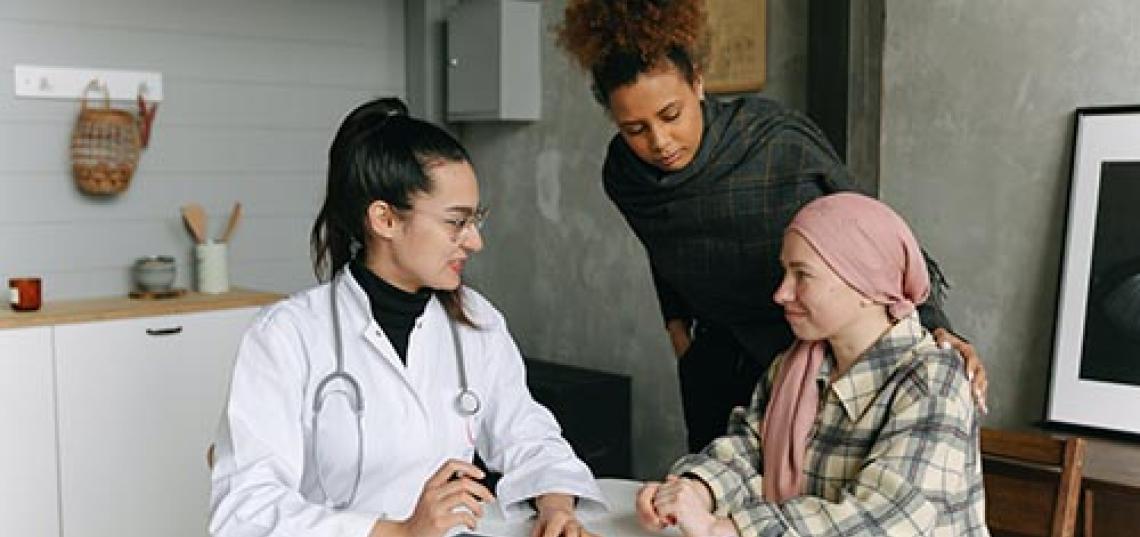
When a family member or other loved one is diagnosed with a serious and potentially life-threatening illness such as cancer, their caregivers and companions (who are often spouses, partners, children, other relatives, and friends), can be unsure about how they can best provide the patient with the assistance they need.
A new study helps identify ways that caregivers can provide optimal support to patients during medical conversations with healthcare providers when the patient is experiencing an extreme illness or facing high uncertainty.
The study, “Dilemmas and Strategy When Companion Participation During Appointments Differs from Patient and Companion Expectations,” published in the journal Health Communication, was co-authored by SC&I Associate Professor of Communication Maria K. Venetis Ph.D.’10; SC&I Doctoral student Allyson C. Bontempo; SC&I Ph.D. alumna and Lecturer at the School of Public Health, University of Maryland Danielle Catona; Assistant Professor of Obstetrics and Gynecology, College of Physicians and Surgeons, Columbia University Alexandre Buckley de Meritens, MD; Associate Professor of Pediatrics, Rutgers Cancer Institute of New Jersey Katie A. Devine; and SC&I Professor of Communication Kathryn Greene.
“We found,” said Venetis, “that when the expectations of the patients and their caregivers are aligned, patients are more satisfied with the caregiver’s support. However, when the communication goals of either or both the caregiver and the patient are not aligned with the patient’s hopes and expectations for the medical interaction, there is an opportunity for both to experience uncertainty, tension, and ultimately frustration.”
One point of possible friction between patients and their caregivers, Venetis said, can be differing ideas and opinions about what information about the patient should be shared with medical staff, and whether the patient or the caregiver should be the one to share it.
“Sometimes, when companions share information about the patient, instead of allowing the patient to speak for themselves, they can unintentionally reduce the patient's autonomy in the process and could be perceived by the patient as being disrespectful,” said Venetis.
The researchers conducted the study through in-depth interviews with thirty-four participants, including 18 gynecologic cancer patients and 16 companions. All patients were women currently receiving chemotherapy treatment for their first diagnosis of gynecologic cancer (i.e., ovarian, uterine, endometrial) and were between chemotherapy cycles two and five (i.e., having experienced initial treatment and met the oncology team previously). All companions were recruited by patients; the patients interviewed were approximately 61 years old; and their companions were approximately 58 years old and included seven women.
Through their research, Venetis said, they learned that some of the caregivers and companions had found a strategy that worked.
These caregivers and companions, Venetis said, “are careful with their participation so that they don't speak at times when the clinician's focus is on the patient. In addition, they frame their input so that any conflicting information does not result in the patient feeling attacked. This is how they participate in medical visits in a helpful way and attempt to manage potential conflict.”
Learn more about the Communication Department on the Rutgers School of Communication and Information website.
Image: Pexels
